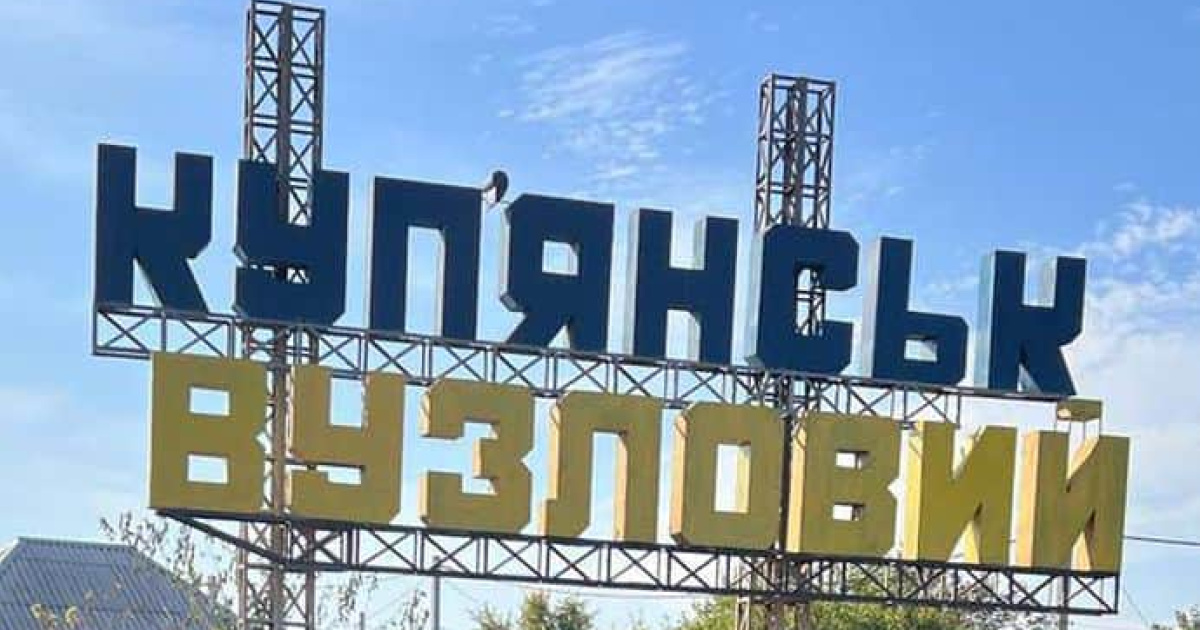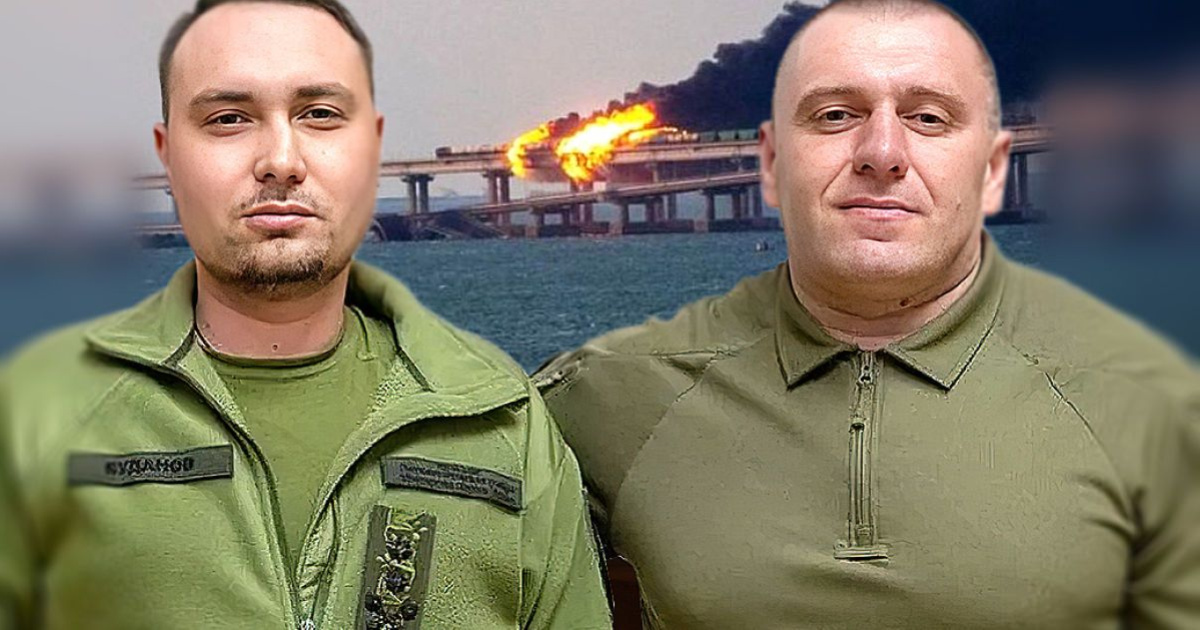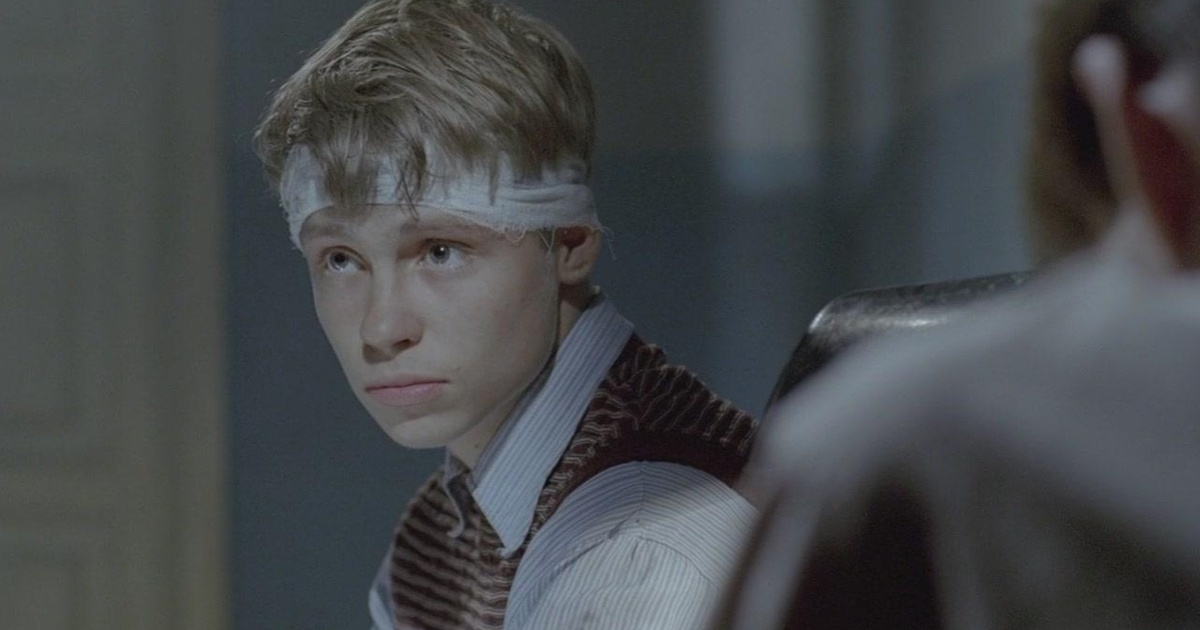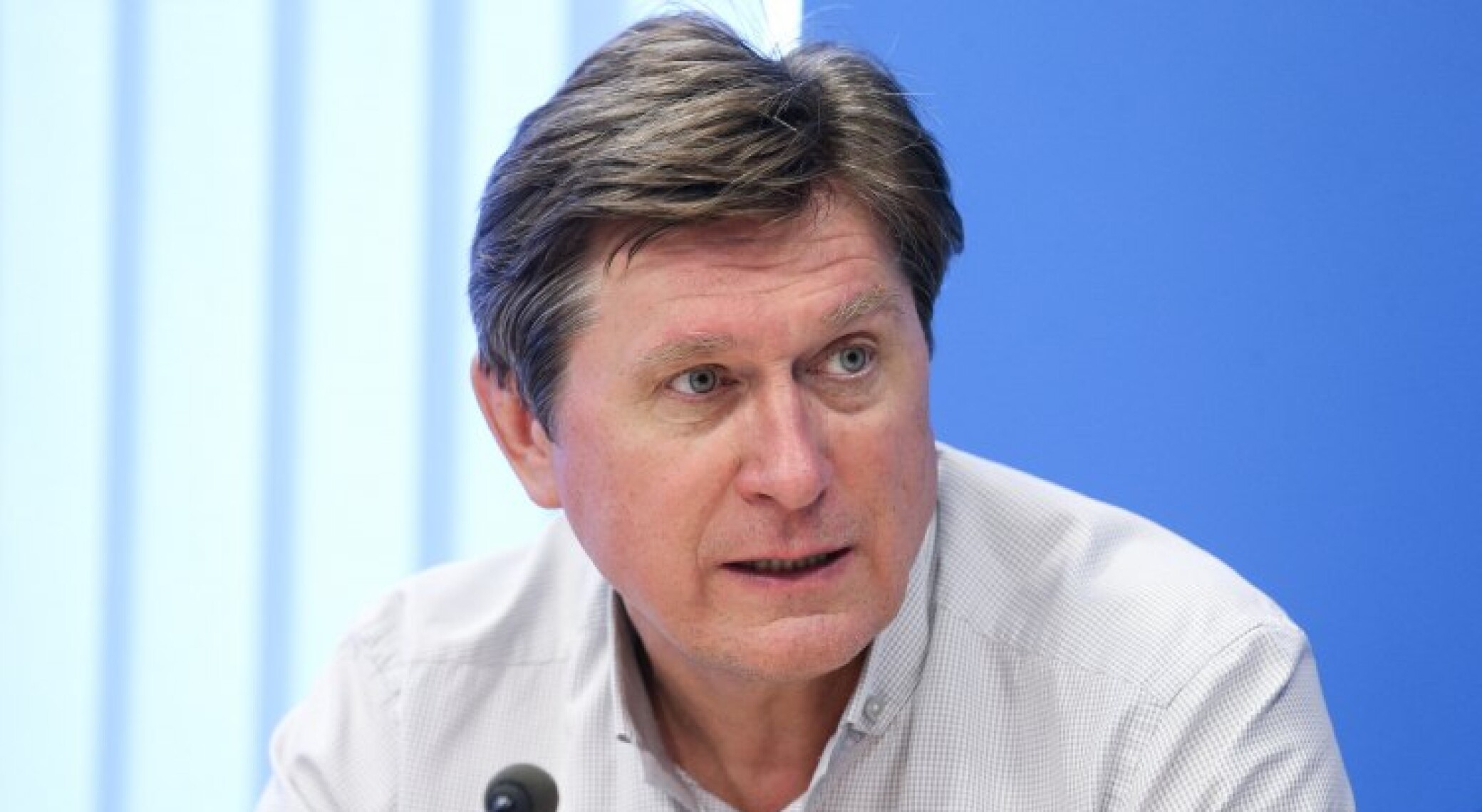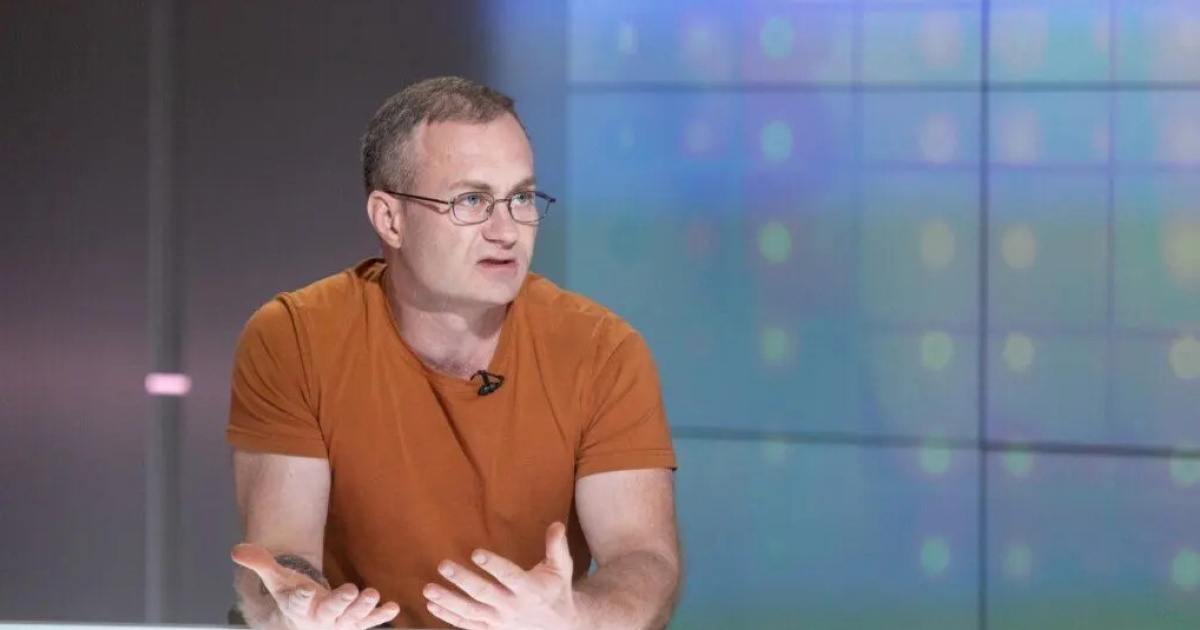
The appearance in Western media of a new war settlement plan, attributed to U.S. President’s special representative Steve Witkoff and russian businessman Kirill Dmitriev, caused a noticeable resonance both in Ukraine and in the United States itself.
Political expert and former member of the Ukrainian delegation to the Minsk TCG, Serhiy Harmash, believes that this document is not a “plan”, but the very fact of its leak to the media and the vagueness of the formulations of these 28 points, in Harmash’s opinion, gives the opportunity to translate Trump’s initiative into a format acceptable for Ukraine.
— Recently, a new plan for ending the war in Ukraine appeared. How can you comment on it?
— The first thing I want to say: you should not perceive this “plan” emotionally. This is not the first plan of the Trump administration, and we don’t even remember where the previous plans disappeared. Secondly, when considering any action plan, before evaluating it, you need to see how realistic its implementation is at all. That is, for example, if the 29th point was signing this plan on Mars, there would be no point in arguing whether Ukraine would give up its territories or not — it is obvious to everyone that the plan is simply unimplementable. In that case, what becomes important is not the content of the initially unrealistic document, but how and why it appeared.
Let’s analyze how realistic this “plan” is. If such a word is even applicable to this text. Honestly, the style, the ambiguity of the formulations, the legal illiteracy — do not even allow it to be called a document.
So, the first point — “The sovereignty of Ukraine will be confirmed”. How? What does “confirmed” mean? Will we be admitted to the UN again? Or will the U.S. cancel its official recognition of the independence and sovereignty of Ukraine from December 25, 1991, and recognize us again? And russia de jure does not deny the existence of the sovereign state of Ukraine… In addition, the question arises of who, when, and in what form will “our sovereignty” be confirmed? And this is only the first point! The content of which is immediately contradicted by the following points. For example, limitations on the number of our troops, obligations regarding our internal and foreign policy. Because the word “sovereignty” implies that all these issues are internal and cannot be determined by interstate agreements.
Second point: “Between Ukraine, russia, and Europe a comprehensive non-aggression agreement will be concluded. All ambiguities of the last 30 years will be considered resolved”. First of all, what is meant by “Europe”? Possibly the European Union. But not all European countries are in it. What about the United Kingdom, for example? Then, what necessity does Ukraine have to conclude a non-aggression agreement with the European Union? And the main question — was “Europe” asked whether it intends to conclude such an agreement with Ukraine and russia? Or will the U.S. and Kyiv (if it agrees to such a “plan”) force “Europe” to sign this agreement? I won’t even mention that the European Union has no armed forces of its own to attack anyone. The EU is not a military alliance and there is no precedent for “non-aggression” agreements in its history. That is, this point is simply absurd. As absurd as the obligations for NATO that were not agreed with NATO.
Next, let’s take point five: “Ukraine will receive reliable security guarantees”. What does “reliable” mean? What are the criteria for their reliability? The Budapest Memorandum was once considered reliable too… How can we agree without knowing what exactly is being offered to us?…
The text also includes obligations for Ukraine to amend its Constitution. But how can the president, or anyone in Kyiv or Washington D.C., take on the obligation to force or persuade four hundred MPs to vote as written in this “plan”? Moreover, changing the Constitution during martial law is explicitly prohibited by the Constitution itself. In general, most of this plan contradicts the Constitution, so it is illegitimate until it is amended. But amending it is only possible after establishing peace, i.e., implementing this plan…
Now about the territories. “Crimea, the Luhansk and Donetsk oblasts will be recognized de facto as russian, in particular by the United States”. What does “recognized de facto” mean? That is, Trump and Witkoff will consider them russian, while de jure the U.S. will still consider them Ukrainian? Then what happens to these agreements in a year and a half, when Trump is no longer in office?
Next — “Ukrainian troops will withdraw from part of the Donetsk oblast they currently control, and this withdrawal zone will be considered a neutral demilitarized buffer zone belonging to the russian federation”. There is no legal mechanism in Ukraine for withdrawing troops and transferring territory to another state. Anyone who issues such an order will sooner or later be convicted of treason. Moreover, such an order is illegal, and according to the Constitution, no one is obliged to follow it…
And what does it mean that “this withdrawal zone will be considered a neutral demilitarized buffer zone belonging to the russian federation”. “Belonging” — is that de jure or de facto? And if de facto, then de jure, these territories remain Ukrainian? Hence the question about another point: “If Ukraine invades russia, it will lose the security guarantees” — into russia de jure or de facto? Will Ukraine “invading” its own territory be considered an invasion? And how is this “de facto” even compatible with international law if it contradicts de jure?
And this masterpiece formulation: “If Ukraine unjustifiably launches a missile at moscow or St. Petersburg, the security guarantee will be considered void”! “Unjustifiably” how? What are the criteria for justification? And why only moscow and St. Petersburg? What about Rostov and Nizhny Novgorod — is that allowed?
Well, practically everything else is along the same lines. That is, this is not a plan, it is a list of putin’s wants scribbled by Witkoff on a napkin from Kirill Dmitriev’s words, supplemented by Trump’s wants to squeeze $50 billion from us. And (even without considering the consequences of its adoption for Ukraine), this text is so absurd that it’s obvious — it cannot be implemented in any orderly way. This text is even more senseless and contradictory than the Minsk agreements. It is simply unrealistic. Just like signing it on Mars.
— But then why did it appear?
— First, it’s important to say that from the text of the “plan” it’s clear WHERE it came from. The point “All Nazi ideology and activities must be rejected and banned” clearly could not have come from an American. This is pure, word-for-word putin narrative. And I get the impression that in the kremlin they perfectly understand that the plan doesn’t work. Moscow’s real goal is to make us, under pressure from the Americans, hand over Donbas. And then putin will act according to the situation — either immediately, or sometime after sanctions on russia are lifted, we’ll be accused of not fulfilling the agreements (just like with the Minsk agreements) and the aggression will continue. At the same time, we’ll lose U.S. support. This is the maximum plan for the kremlin. The minimum plan is to buy time, delay new sanctions, accuse us already now of not wanting peace, and provoke Trump’s anger against Ukraine. Plus russia, which probably leaked the “plan” to the media, saw Zelensky weakened after the corruption scandal and decided to further undermine trust in him simply by discussing such a “plan”. But it’s unlikely they seriously hope for its adoption and implementation by Ukraine.
— Don’t they understand this in Washington D.C.?
— Judging by how abruptly, and through the media leak, this “plan” appeared in the public space, Washington D.C. hasn’t had time to process it yet. It seems that after the Congress vote to release documents on the pedophilia scandal that Trump may be involved in, the White House sharply decided to distract public attention with some other scandal. And here came Witkoff with his napkin after lunch with Dmitriev. Trump approved it without thinking, and it started rolling. And from Rubio’s statements and Trump’s reactions, it was clear that almost all actors in these events are reactive, not proactive. It looks like there’s no script; the plot develops according to the situation right before our eyes. I’m sure that after our European partners get involved, the deadline for Kyiv to adopt the “plan” will be postponed indefinitely.
— Many think the Americans leaked the plan themselves.
— I see it more as moscow’s usual tactic. Russians, during the Minsk negotiations, often leaked some agreements of the Normandy Four if they seemed provocative to Ukraine, and moscow understood that Kyiv was unlikely to implement them because of domestic political factors. The purpose of the leaks then was to destabilize the situation inside Ukraine, plus show Normandy partners that it’s Kyiv that is breaking the agreements and the peace process. In reality, moscow simply wasn’t interested in resolving the conflict on a parity basis.
But! If the “plan” was really leaked by the Americans, that’s even more positive for us. That means the White House intentionally gave Ukraine, Europe, and the American public the opportunity to remove the most ridiculous russian demands from the “plan”. At the same time, if Trump promised putin something earlier, he created a way to say: I did everything I could, but this tango takes not only the two of us…
— According to you, the situation is not as critical as it seems. But on Friday evening, we saw Zelensky’s very dramatic address to the people.
— I don’t want to be cynical, but when this “plan” appeared, I thought: how timely it is for the President’s Office. The situation reminds me of February this year. Zelensky’s rating is falling, and then Trump kicks the president of Ukraine out of the White House, a national humiliation, and the people immediately rally around their president. Now a similar effect: screw the corruption — if we’re talking about the threat of losing national dignity, Mindich moves into the background. So, dramatizing the moment benefits our authorities, and Zelensky — let’s not forget — is a good actor.
— Which positions of this “plan”, if it’s really Trump’s plan, are the most critical in your view?
— I would give the first place to lifting sanctions against russia and reintegrating it into the global economy. I believe that the main strategic goal for the Ukrainian state is to weaken the empire to the point that it simply cannot fight us. Otherwise, future wars are inevitable. For this, even territories can be sacrificed. Lifting sanctions strikes at this main strategic goal.
Second in criticality, I would put the demand for troop withdrawal from Donbas. Yes, we could lose Donbas as a result of a military defeat, but that would just be a defeat. A voluntary withdrawal is both a defeat and a shame, and a de facto acknowledgment that Donbas is russia’s territory. This would greatly increase the cost of reclaiming it in the future. The Americans, as well as Europeans, later, when attempting to liberate Donbas, will say: “You left it yourselves, which means you gave it up”. In Minsk, it was exactly like that — once a mistake was made, we were no longer allowed to reverse it, “so that there would be no escalation”.
Third — the attempt by the U.S. to effectively introduce colonial administration here — that is clearly visible. And fourth — restrictions on types of weapons, which will undoubtedly weaken us in the face of future aggression. We can talk about the size of the army, but not about types of weapons.
— And the main positives of this plan?
— That a public discussion about a plan of concrete measures has begun. And, given its publicity, it can be influenced by our European partners, as well as Ukrainian and American societies. Also, it mentions U.S. guarantees. In fact, this means that the U.S. agrees to provide some guarantees; it remains to formulate them so that it’s not like the Budapest Memorandum.
— Given the presence of such pros and cons, how should Ukraine respond to this plan?
— Let’s be honest: if this is a “plan”, then it is a plan of capitulation. And Ukraine cannot accept it. But, at the same time, we also cannot simply reject Trump’s plan. Therefore, based on this text, we need to start working on a real plan, and during this process, transform it enough so that it becomes at least acceptable for us.
Right now, this document is not a plan. But besides all the fluff it’s full of, it still outlines a range of issues that Ukraine will have to address one way or another. Whether we like them or not, the issues are set, they objectively exist in the geopolitical space that influences us — we need to respond to them. And at the same time, defend our options in front of our partners and opponents.
Also, this story has shown that work on a concrete plan has already begun. This is an objective process. It no longer depends solely on us. Therefore, we need to “ride this wave” — not get outraged, but, putting emotions aside, look for points where we can truly engage with the Americans. Let me remind you that so far, we are talking directly with them. Our task is to show readiness for compromises. They, too, cannot come to putin with any solution if it doesn’t have “carrots” for moscow. We must convince them that we are providing these “carrots”.
— For example, what points of contact do you see?
— I would call these — points of dialogue. You know, I always say: russia cannot use against us the mere fact that some of our citizens speak russian, or that someone prays outside their local church. Russia uses against us only the problem, the conflict that we ourselves create around the russian language or the UOC, when we try to forbid our citizens to speak their native language, or to pray in the church they recognize. It is in our interest to stop turning this into a problem. Because it divides our society. These issues can be resolved without coercion, without politicization. Not as quickly as some would like, but, at least, without creating problems that the enemy can use against us.
Therefore, there are points; we just need to remove the emotions and look in this plan for what can be worked with. And work. As long as possible. It’s clear that such things are not done in a week.
Also, it would be good during the negotiations (if we are talking about peace talks) to get guarantees from the U.S. that russia will not shell at least civilian objects. In other words, roughly speaking, combat operations along the front line continue, but things like in Ternopil should not happen — otherwise this is not a peace process at all, but an absolute farce. I think this is logical, and it is within the U.S.’s power to negotiate this with putin.
If we cannot simply reject this plan, we need to extract the maximum positives from it.
— When, in your view, could the prerequisites for real negotiations on pausing or freezing the war arise?
— They could arise in two cases. Either russia fully captures the Donetsk oblast — then it can really stop and will be interested in doing so, given its economic situation. Or when it is forced to stop by economic sanctions and economic weakening, plus our strikes on russia. A third option — to stop it on the battlefield — apparently, for now, is unlikely. Unfortunately.
— Why is putin so fixated on capturing the entire territory of the Donetsk oblast?
— Putin wants everything, of course. But he doesn’t have resources for everything. Therefore, he needs to exit military actions elegantly to get a pause and accumulate strength. However, he cannot stop until he captures the Donetsk oblast, which is already written into the russian constitution as russia’s territory within Ukrainian administrative borders. Otherwise, he not only “didn’t liberate the people of Donbas”, but also lost russia’s territory.
The documents do not clearly state that the Kherson and Zaporizhzhia oblasts are part of russia within Ukrainian administrative borders. But for the Donetsk oblast, it is formulated precisely this way. And putin cannot stop until he “liberates” this “territory of russia”. That is why he wants to push through the U.S. the demand to withdraw our troops from Donbas. Time is already working against russia. Resources are decreasing. Another year or two, and russia itself will no longer be able to fight. Therefore, in this “American” “plan” he even agrees to a demilitarized zone there, just to declare this territory as his own and reintegrate into the global economic space, getting rid of sanctions.
— You once said that a possible agreement could be on the eve of the russian State Duma elections. Do you still think so?
— I still believe that the most likely scenario is a halt to military actions somewhere in the summer of next year. That is, right before the elections to the State Duma and the U.S. Congress.
But everything will depend on many factors. If Trump signs new sanctions against russia, this could even speed up the process. If he doesn’t — everything could drag on. First and foremost, it all depends on russia’s economic capacity to continue the war and our resilience.
By Vladyslav Bulatchik, OstroV

